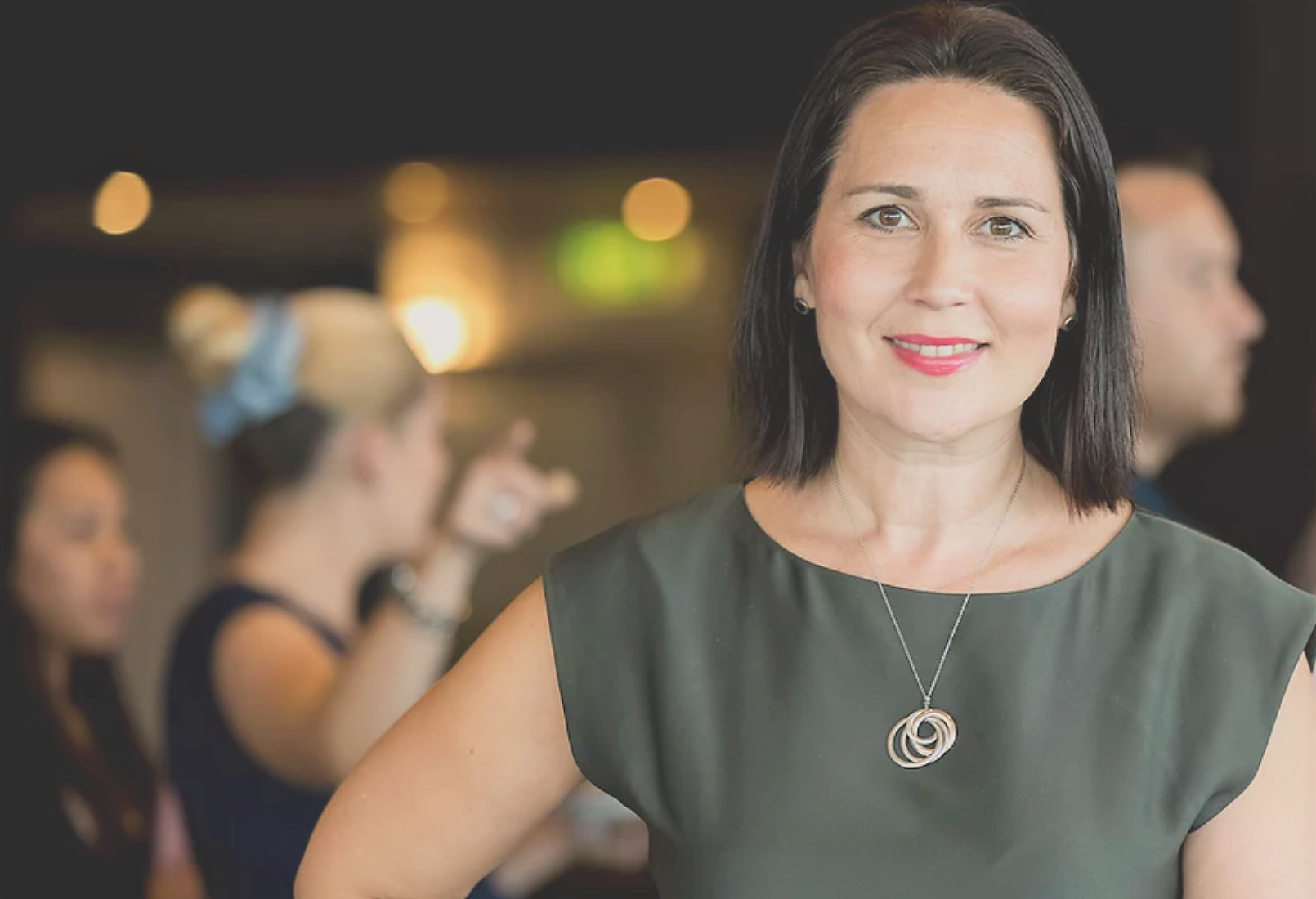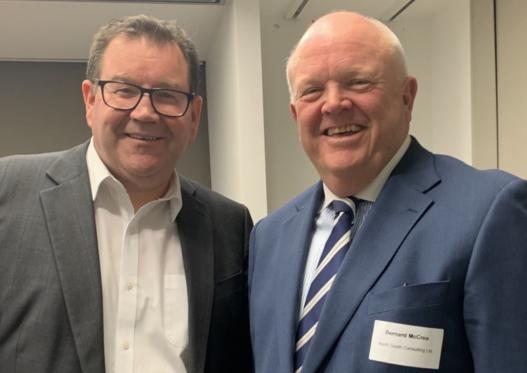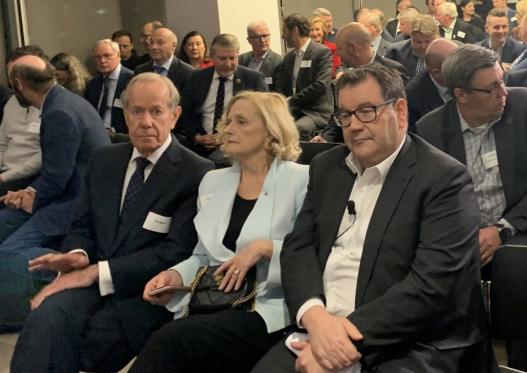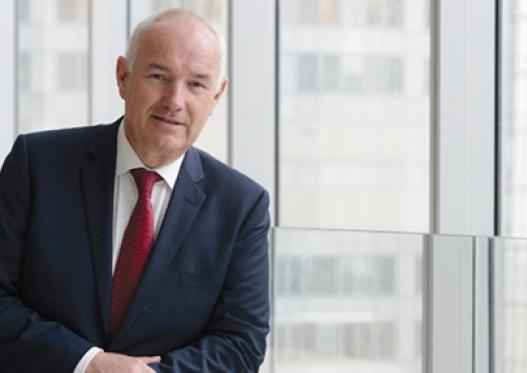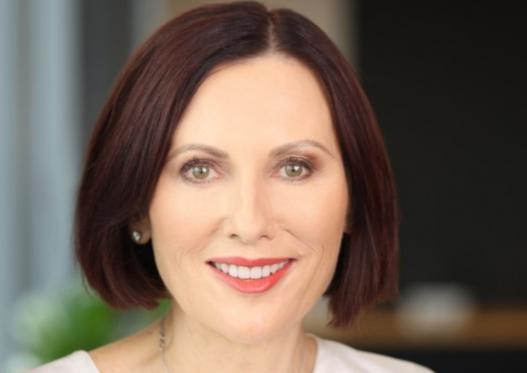Watching Julia Palmer’s thought-provoking webinar on networking made me realise I’d let slip on a pledge to stay in touch with contacts and colleagues.
Whether COVID and the latest lockdown were to blame or the rot had set in earlier is probably not as important as doing something proactive.
That said, the note to catch up with three of those contacts was left folded in the virtual wallet until I caught up with the Relatus CEO who is giving InFinance more tips and guidance on how to ensure your networking is doing what it should.
Given that research shows three-quarters of peoples’ existing networks aren’t fulfilling their needs, it’s not surprising FINSIA members’ enthusiasm to learn more.
Having lived and worked around the world, Julia has dedicated her career to cleaning up the negative connotation of the word ‘networking’ by helping to educate businesspeople on the importance of developing strategies to create and manage viable internal and external business relationships.
“It is really important to link networking with a network. Most people participate in networking activities with no rhythm or reason. Once you establish your goals and link it with your job description, your company’s growth plans and goals and indeed your career plan, you will see it in a whole new light,” Palmer told me.
“Most people fall in the category of misguided networkers due to the techniques they use networking, like collecting cards. It was good to see that most of the FINSIA participants admitted to being accidental, with a small portion already strategically networking.
“During the webinar, we focused on ways to move up into a more strategic focus as this is where the best returns are, both in an immediate sense, for your time and money - but importantly in a long tern sense, where the individuals in your network are all purposely chosen, and the relationships are harnessing towards two-way outcomes.
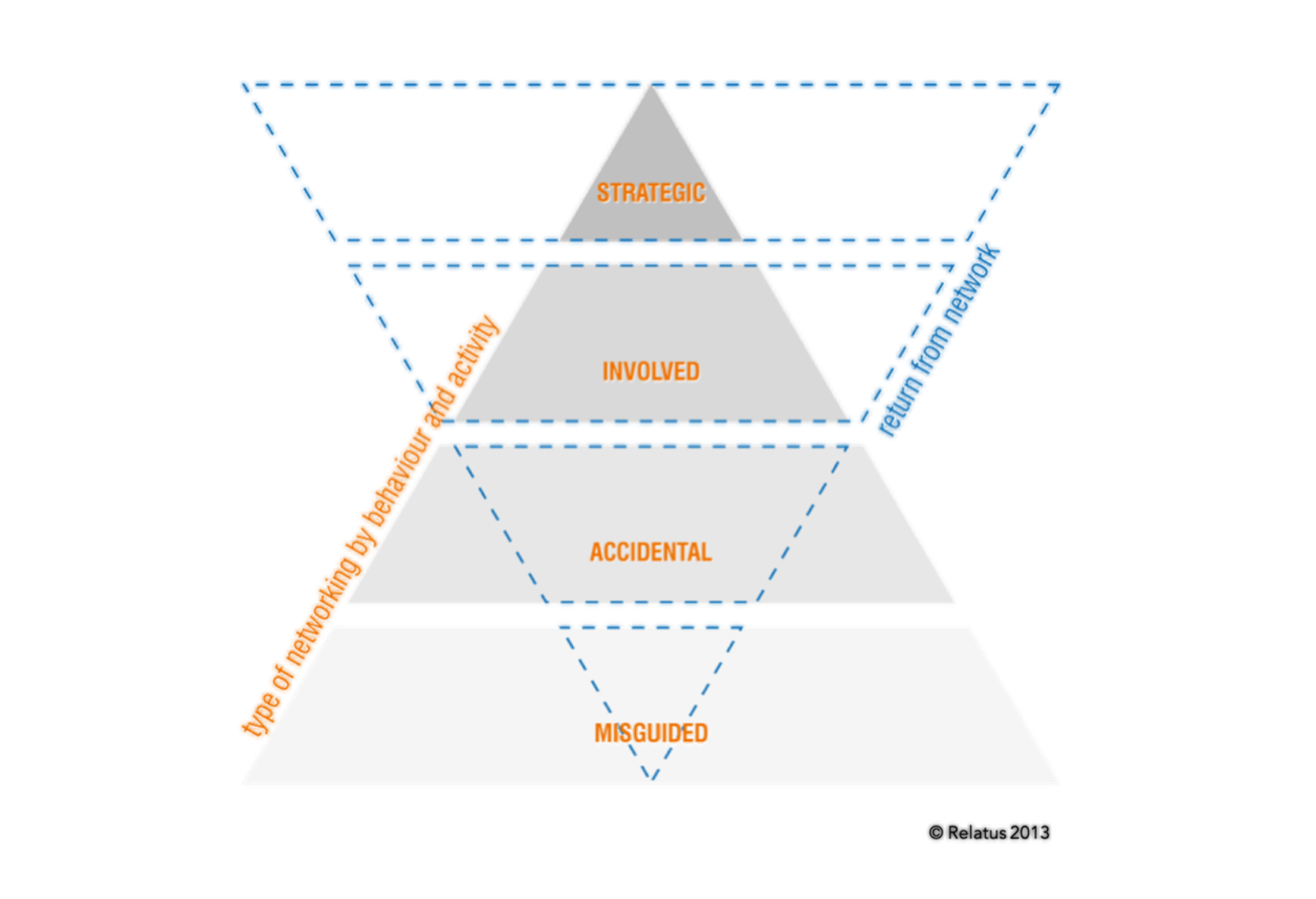
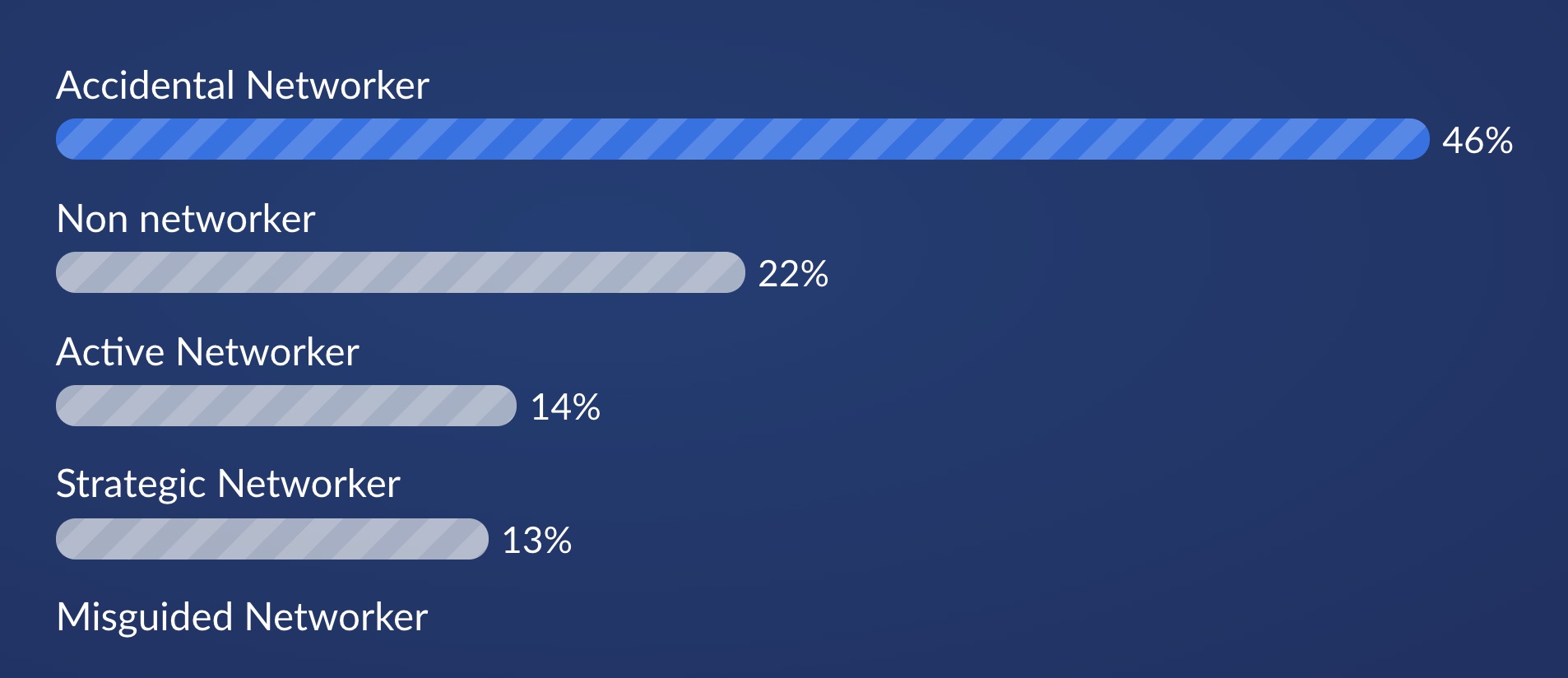
“There is no doubt that relationships have been impacted by current times. Whilst productivity has been seen to have improved, we won’t understand the true impact of relationships for some time. Many I speak to are sharing that their close circles got closer, and their weak ties got weaker over the last 18 months.
“Prior to the webinar, participants were asked to describe in one word the biggest challenge they are facing with building new relationships in current times.
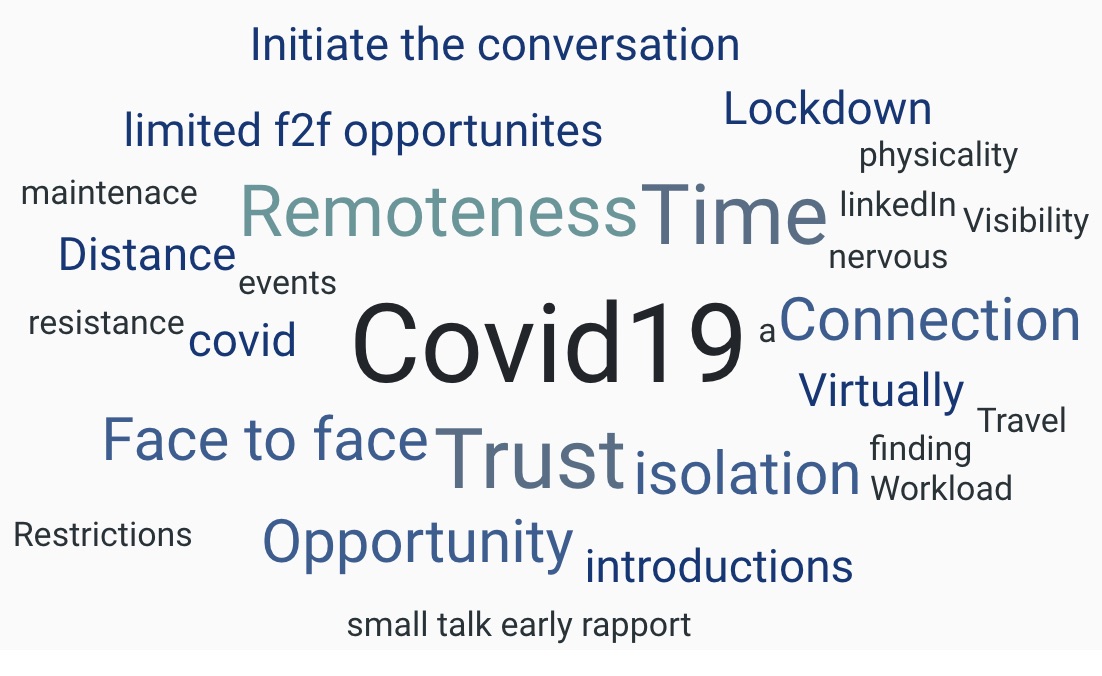
“Given the answers, it is pretty obvious that we are missing the ‘water cooler’ or serendipitous encounters. Studies show that such random encounters increase innovation and productivity and of course, with distancing, this has suffered immensely.
“Much of what I teach, most people know but they just don’t do. We don’t just teach techniques to refine how they network, but we put in into a plan that is actionable so that they can embed the behaviours. We work with clients to help them map their networks as a starting point, this way we can analyse the gaps and opportunities.
“Once you understand who your network is and the value of the relationships with in, you can look at ways to connect in a more meaningful way. Managing two–way relationships is not an easy process. Most people operate in a very transactional way.
“Easier said than done. In fact research we have done at Relatus has shown that most people find starting and leaving conversations quite challenging. Let alone navigating a whole new way of connecting this last year. Harvard research that I shared during the webinar proved “How are you” and “What do you do” are the two most useless questions you can ask someone.
“I teach that in order to manage successful two-way relationships, you need to discover and discern what you can about each other. Rather than diving straight into the other persons world, find some common ground first to help create bonds that connect you.
“Relationships matter and networks are powerful.
“The good news is that half of the predicted difference in career success is related to the nature of our networks. That was the conclusion of research conducted by Ron Burt Professor of Sociology and Strategy at Chicago Booth School of Business, who investigated what the number one predictor of career success was as defined by promotion, compensation, and industry recognition.
“But as we briefly touched on thanks to a participant question, not all networks are created equal. It is not enough just to know lots of people. Career success comes from having both a diverse network AND actively playing a role in connecting with these people. It’s a bonus if you can go on to connect people within it to each other.
“A good way to measure the success of your network is to see how well your influence reaches the networks of those people. I call this the ripple effect of networks. Just imagine being a few degrees away from… well, anyone (if your network is strategically filled with the right people)!
“This is where we take what you know, which is your human capital, and link it to who you know, which is your social capital. The strategic networkers will benefit further as they will have people promoting them and be promoting to become hub’s / brokers within their networks.
The Shift – Are You And Your Organisation Future Proofed?
- What you know
- Who you know
- Who knows you
- Who is promoting you
“The drastically changing global playing field, technology takeover and organisational shuffle (flattening of hierarchies) is leading to the rise of networks of teams and expanded connectivity.
“All job titles in all industries need to develop their soft, social and emotional skills to give them the human advantage.”
At the end of the webinar, this was the response to the question about how participants would work on their networks from that day onwards.
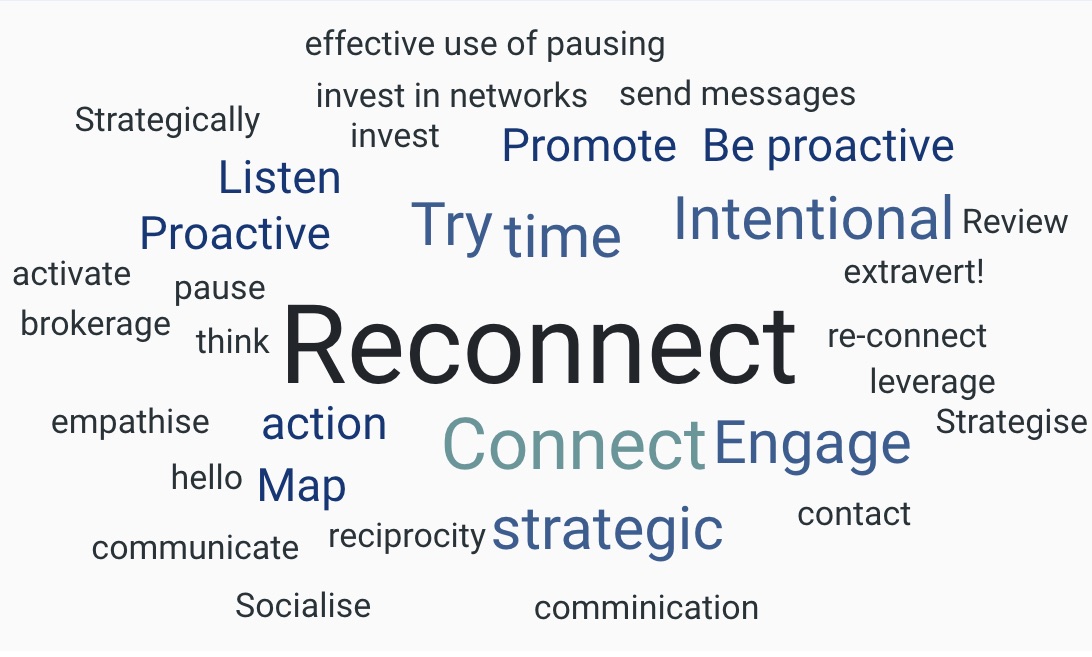
We recommend following Relatus and connecting with Julia on Linkedin.
Julia has also extended the 20% enrolment discount to all Finsia members and is offering 30% all in-house workshops, to help get you relationally focused.
Julia Palmer is a respected Relational Strategist and Chief Executive of Relatus, helping you develop your relational capabilities to give you the human advantage.



